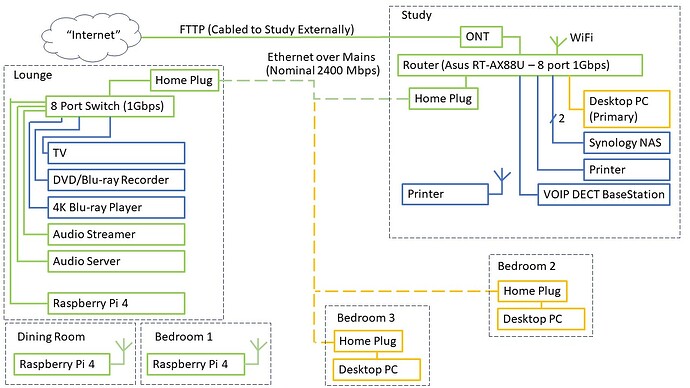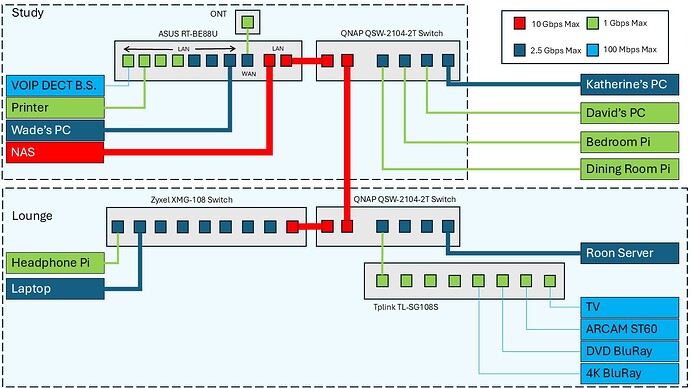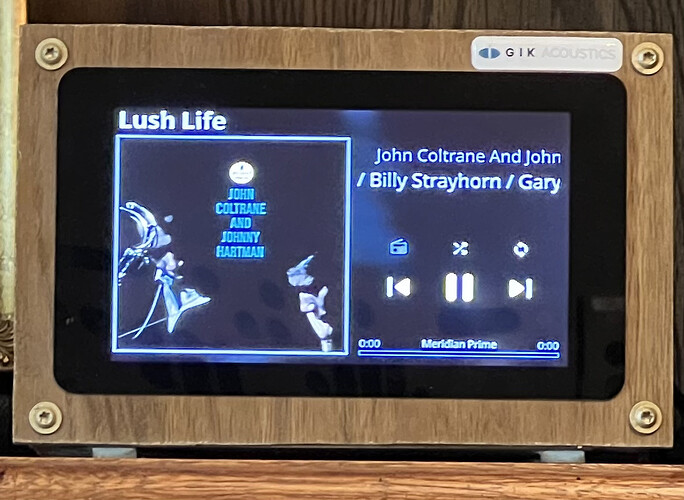I’ve been thinking about what might contribute to the smooth experience some people have with Roon. One key factor seems to be that many of them have simple networks with minimal security measures. But things are very different in a busy household.
For example, I rely on a mesh network to get proper coverage, which immediately introduces potential points of failure even though I use cabled connections where ever possible. On top of that, I typically have around 32 devices connected, with another 40 offline devices on the list. Modern homes are packed with IoT gadgets—media players, phones, tablets, watches, laptops, camara’s, doorbels, smart lighting, and more. And when you add dodgy manufactureres and teenagers into the mix, robust network security becomes essential. That’s another area where Roon can struggle.
Take ARC, for instance—I’ve never been able to get it working without turning off far too much security, which isn’t something I’m willing to do.
Out of the four people I know who use Roon, two (both single guys with simple networks) don’t have any issues. Another person with a setup as complex as mine has similar struggles. Meanwhile, services like Spotify work 99.9% of the time and are consistently fast. In fact, every other music player I’ve tried has been stable—except for Roon.
Roon seems to be overly sensitive to what’s happening on the network, leading to issues like playback stopping, slowdowns, long connection times, and so on. I see this as a fundamental design flaw. Roon really needs to be less dependent on a user’s specific network environment. No other music player I’ve used has this level of fragility—it’s only Roon.
And yes, I’ve reached out for help in the past, but the issues persist. My point is that it’s not helpful to comment that you’re having no problems when your situation is completely different. I’ve even tried switching off everything on my network except the Roon server and one endpoint. That setup does run stably—until I hit another recurring issue with Roon: memory leakage. Sure, rebooting daily helps, but that’s not how a server should function.
The only real fix for me would be adding a second internet connection, but I’m not willing to pay another €40 a month just to keep Roon running smoothly.
I’m genuinely glad that some people don’t face any problems, but it’s clear to me that Roon struggles in complex network environments. I believe this is its Achilles’ heel. While the software itself is excellent, the slowdowns and hiccups drive me crazy.
Lately, I’ve been using Spotify more, and to be honest, now that I’ve gotten more familiar with it, I don’t miss Roon as much as I thought I would.


